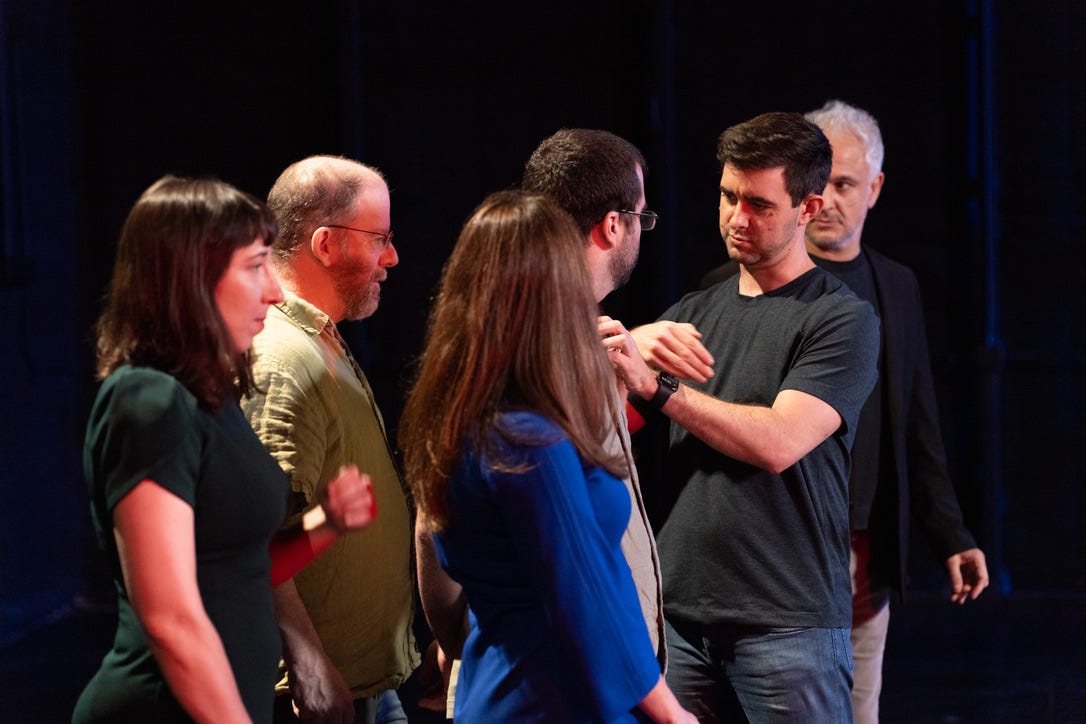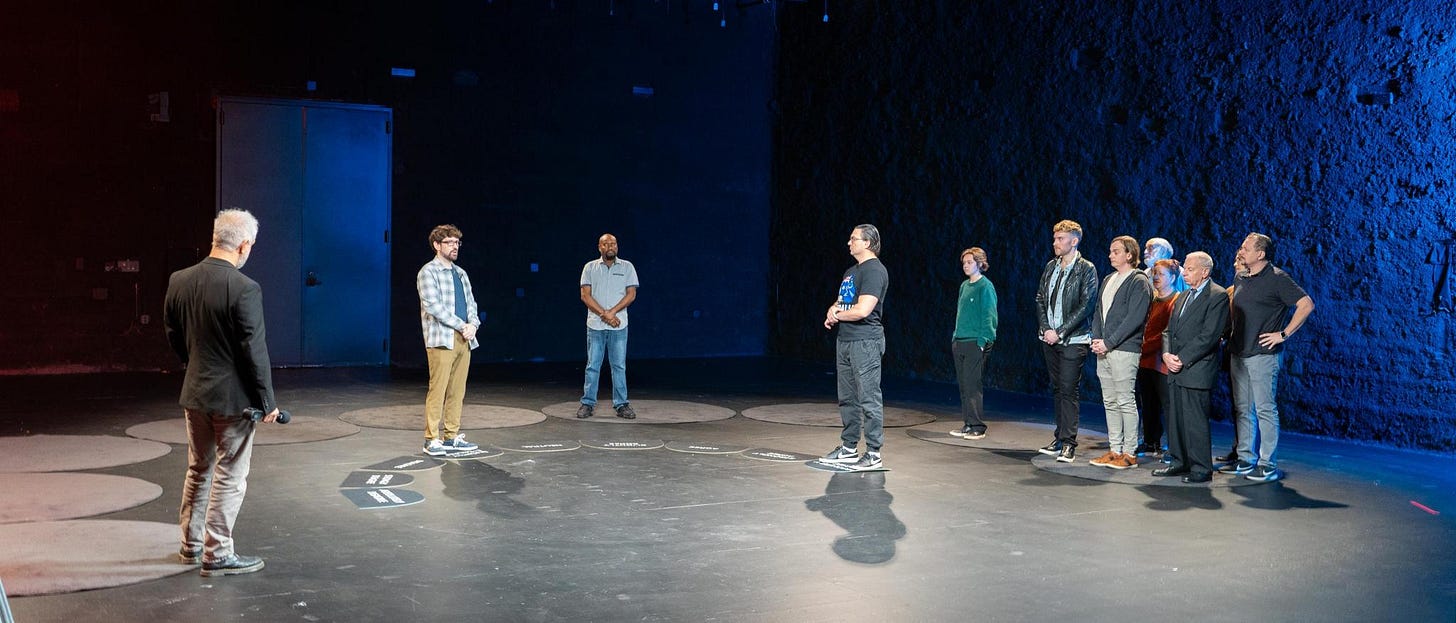This is a guest post by Reid Nicewonder, from Cordial Curiosity.
After experimenting with a bigger version of Spectrum Street Epistemology in Florida in February, where Peter and I increased the number of participants by having a duplicate set of much larger mats behind our usual ones, we continued to experiment while we were in Budapest, Hungary at The Danube Institute.
I particularly like this evolution as it allows the audience to see more often which arguments are persuading the other participants. For example:
During one of our public SSE events, at the end I was given an opportunity by Peter to moderate a session where I facilitated a discussion on the claim, "Surrogacy should be banned." There were thirteen total participants, featured among them Peter Boghossian, Calum Nicholson, Rodrigo Ballester, and Hugo Martin.
The following is what was going through my mind during some of the highlights of this discussion and an explanation as to why I made the decisions to moderate in the way I did.
Right at the beginning, I made sure to have the word surrogacy defined as it’s important to ensure everyone is on the same page about the meaning of all the terms in the claim from the get-go. To do this, I had Hugo define it. He said it was a practice where a third-party woman carries a child for a couple unable to conceive, typically for monetary compensation, and hands over the baby after birth. Everyone was on board with this definition, so we were good to go.
After a countdown from five, the participants positioned themselves all along the spectrum of agreement-levels. Exactly what we want to see. Rodrigo landed on the strongly agree mat, so I requested for him to give his main reason why.
Here it is:
As an SSE moderator, this response was a bit challenging as it included a few reasons. But not a problem as I could see that many participants were persuaded by the reason that ‘surrogacy transforms a woman’s womb and a child into a business transaction’. In Street Epistemology conversations, we want to focus on one real reason at a time, and never rationalizations.
Of course, that descriptive claim is trivially true. No need for discussion there. What is contentious is the normative, implicit premise within that argument that “If a woman wants to rent her own womb for money, that is immoral.'“ So that’s the claim I now had everyone consider and move to their level of agreement. This is the main job of a good SSE moderator, to look for the most contentious premises within all of the arguments that are being made. There you’re most likely to find errors, and identifying and correcting errors is the whole point of the exercise, as that’s the engine of not only scientific progress but for progress in politics and morality.
For that claim, it was basically Peter on the disagree side vs everyone else, which was interesting. I always have respect those who literally stand their own ground and not conform to the majority opinion. I then had Peter attempt to explain why everyone else was wrong. He made the point that that renting out one’s body is basically just what work is, questioning why surrogacy carries a moral stigma when other physically demanding jobs do not. In effect, arguing that individuals should have sovereignty over their bodies—whether that means renting a womb or even selling a kidney.
Later on, Hugo raised concerns about exploitation. He suggested that consent might be compromised when a woman is situationally vulnerable (poverty, injury), thus making surrogacy a potential "slavery of the poor for the sake of the rich." He envisioned a dystopian future where surrogacy farms become a normalized occupation, a social ill too monstrous to ignore. This opened up a whole suite of claims to explore. Including:
A woman being a surrogate is exploitative to the woman.
A man working on an oil rig is exploitative to the man.
It’s possible for someone to consent to being exploited.
That last claim led to some disagreement, but one that stemmed from different interpretations of the word exploitative, whether it implied consent or not. But no need to get bogged down in semantics, as I just made a new claim that got at what I was more interested in, which was the potential risk of death. Another advantage of SSE, as we can sidestep such issues fairly quickly.
I then got a new claim to discuss from an audience member, “There is nothing holy about the creation of life.” Peter resisted the metaphysical baggage of both “holy” and “sacred”. It’s fascinating how certain words imply certain metaphysical theories and have such different moral valences associated with them.
At the end, one participant—who initially opposed a ban—shifted to strongly agree, swayed by concerns about the child’s well-being. If evidence showed no harm to the child, he would reconsider.
I thoroughly enjoy helping people critically reflect – the main goal of SE. Whether that be one on one or in a group format with SSE, which also helps people speak across divides. All of this is exactly what I think the world needs more of. Please let me know how we can make this approach even better!








Share this post